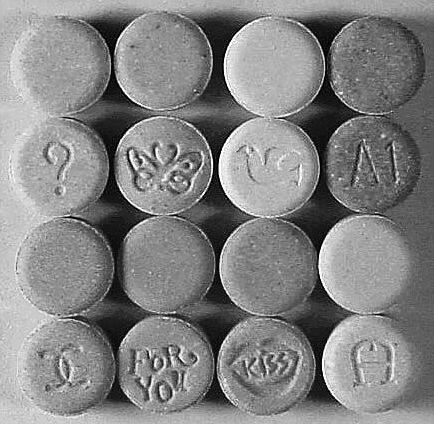
Wikimedia Commons
As Western medicine looks to adopt psychedelics as a therapy option for mental illness and as regulators court their legalization, two Yale School of Management students have set out to search for investment opportunities to boost psychedelic drug manufacturing.
Marik Khazanov SOM ’19 and Evan Beinecke SOM ’19 make up one of the first groups to search for such investment options. As views on psychedelics — which include MDMA and psilocybin, also known as “molly” and “magic mushrooms,” respectively — change among the medical community, Khazanov and Beinecke are at the forefront of creating an investment strategy within the psychedelic market should the drugs be approved for medical or recreational use.
“[We] have really seen the potential for psychedelics to be an incredible tool for therapy and healing for individuals, and decided that we wanted to explore what it would be like to be the main financiers of the future psychedelic industry,” Khazanov said.
The duo is looking at how society will use these substances in the coming years. If approved for medical use, new investment opportunities will arise as pharmaceutical companies begin to manufacture the drugs. If psychedelics are declassified by state or federal governments for recreational use, other opportunities such as investment in edibles will come about.
Khazanov explained that manufacturing psilocybin could bottleneck if certain materials for growing the mushrooms are not readily available, so putting money toward manufacturers who are able to produce the drugs more efficiently, faster and at a higher quality than others would be a viable investment opportunity.
“We hope we can facilitate a transition that we believe will benefit both psychology and the greater world, and also in doing so provide a great return to those who want to invest in it,” Beinecke said.
Psychedelic drugs have been shown to have legitimate therapeutic benefits and could change treatment of mental illnesses. According to Robert Krause — a lecturer at the School of Nursing and a faculty adviser for the Yale Psychedelic Science Group — scientists have found that psychedelic drugs may effectively treat disorders such as post-traumatic stress disorder when combined with behavioral therapy in a clinical setting.
For patients with PTSD who process traumatic events in the amygdala — the brain’s emotional center — taking a psychedelic may allow them to instead process their trauma in other parts of the brain, like the prefrontal cortex. When this happens in conjunction with counseling, patients are able to face their trauma without re-experiencing negative emotions associated with the event.
Krause noted that some researchers are concerned that patients will seek out psychedelics for recreational purposes, although there is no evidence to support this concern.
Use of the drug for this purpose is currently under review in a phase three clinical trial — the last stage before a treatment can receive approval for widespread use. Still, psychedelics such as psilocybin and MDMA are classified as Schedule I drugs, which have “no currently accepted medical use” and are of “high potential for abuse,” according to the U.S. Drug Enforcement Administration.
Beinecke said that the removal of drugs from controlled substances lists is an arduous process that requires maneuvering through complex legal hoops and combating stigma. After the war on drugs took off during the ’80s and ’90s, Beinecke said that substances like psychedelics were associated with “stigma in the sense for someone to consume these substances is not only detrimental to themselves but detrimental to everyone around them.”
Both Beinecke and Khazanov have considered how increased use of psychedelics could negatively impact indigenous populations who have used the drugs for cultural or medical purposes for centuries. Beinecke said that legalizing psychedelics for medical or recreational use in the U.S. could bring tourism and gentrification to indigenous lands. It could also cause minimization of indigenous cultures as the West accepts these drugs in the same way it has adopted yoga and meditation.
If they chose to invest in a culturally significant psychedelic such as ayahuasca, the duo said it is considering options to mitigate potential harm to indigenous communities, including giving proceeds back to the communities involved in the production or manufacturing of the substance.
British psychiatrist Humphry Osmond coined the term “psychedelics” in the 20th century.
Marisa Peryer | marisa.peryer@yale.edu







